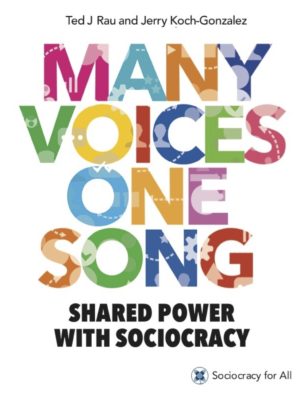Category: Leadership and Self-Organization
Sociocratic principles and practices are based on each individual developing leadership skills and sharing the responsibilities of power and decision-making that democracy lacks. What is leadership? How do we all become leaders? How do we support leaders? How does leadership depend on followership?
Power over is not always about forcing, coercing, pressuring, manipulating etc. It can be as engaging as power with. In terms lazy subordination and undeveloped personal power, power over can be an engaged relationship between the autocrat and the subordinate. Some people want to be dominated and to do so is engaging them, even if it is codependence. With the possible exception of physical force, as in terrorists on a plane, power over is a… Read More . . . “Positive Power Over” In another post, I just asserted with no evidence what-so-ever that more than 99% of the world’s population had no knowledge of sociocracy, the world’s most deeply democratic method of governance. Someone might have a method of measuring this but I have a quick way.
When I Googled “sociocracy” in 2002, there were 12 pages listed by Google. Most were repeats of links to Kees Boeke’s essay and to the Sociocratisch Centrum site.
Today, as… Read More . . . “How Many People Know about Sociocracy?” A great concern of the Global Circle of the international sociocratic certification body is and has for many years been convinced that certification is essential to preserving the core principles and their proper application. In addition to a concern about the principles being misapplied and the method misrepresented, the Global Circle is concerned about “sociocracy” becoming like “democracy” — having no definition and the name being used by anyone inaccurately, even deceptively.
Professional associations are… Read More . . . “The Downside to Standardization” Does anyone believe that there should be a world-wide hierarchy of double-linked sociocratic organizationsThe Delibrative Democracy Consortium (DDC)u is an alliance o...?
There definitely are. They don’t perceive the Big Brother implications of this because of consent and double-linking. If an organization, through its double-links can object to the decisions of the world-wide organization, there is no possibility of establishing a dictatorship or placing limitations on that organization. The implications of this kind of thinking… Read More . . . “Central Authority?” To be a sociocracy, in the same sense that a democracy is a democracy, the principles and methods would have to be adapted to local and national governance. A sociocratic structure would be a radical departure from the way democratic governments are structured today. It might emerge more easily in a country that is just emerging from an autocracy because it could emanate from a single point rather than having to unify several conflicting governance… Read More . . . “Inherent Conflicts in Democracy” 
